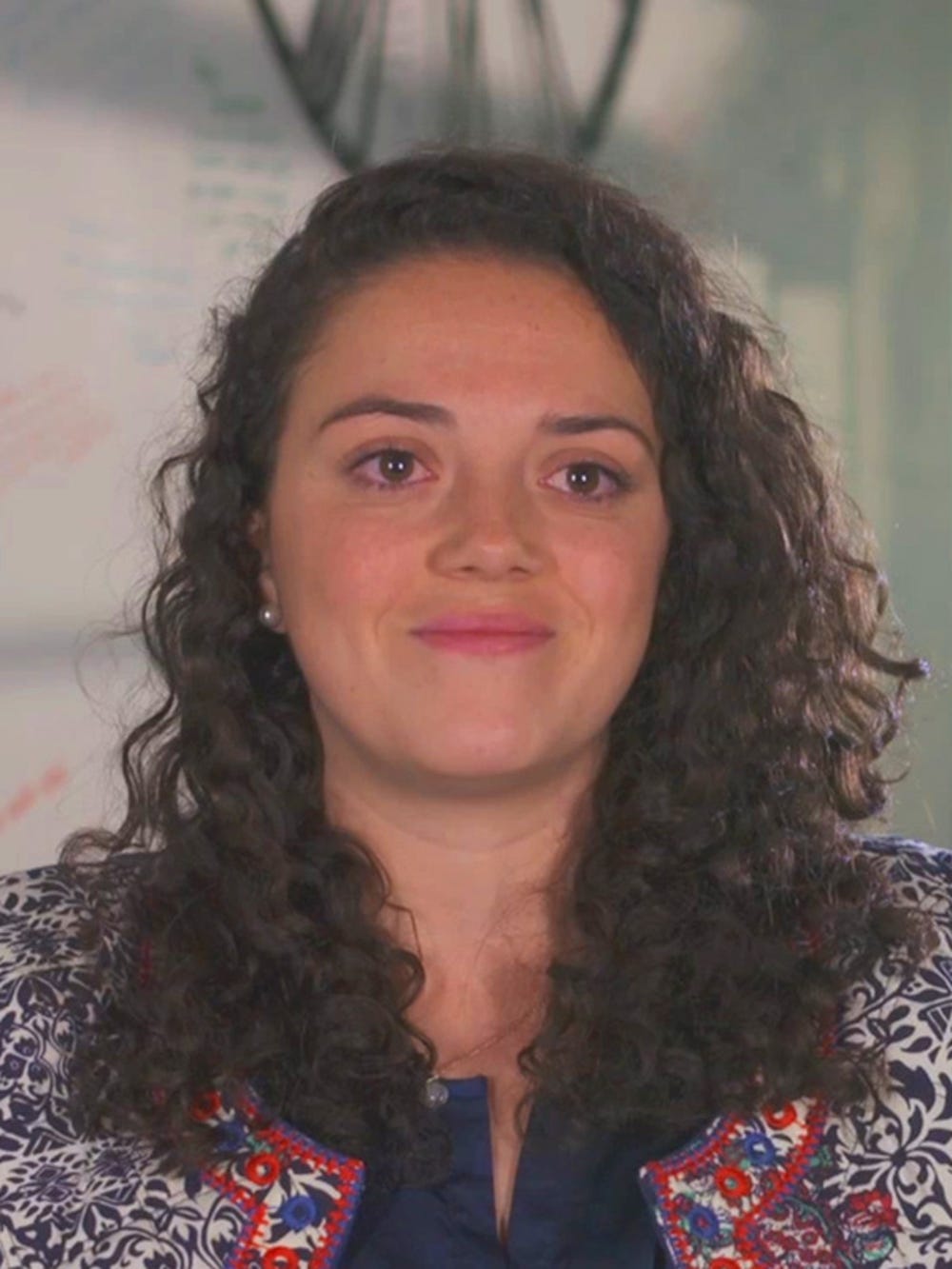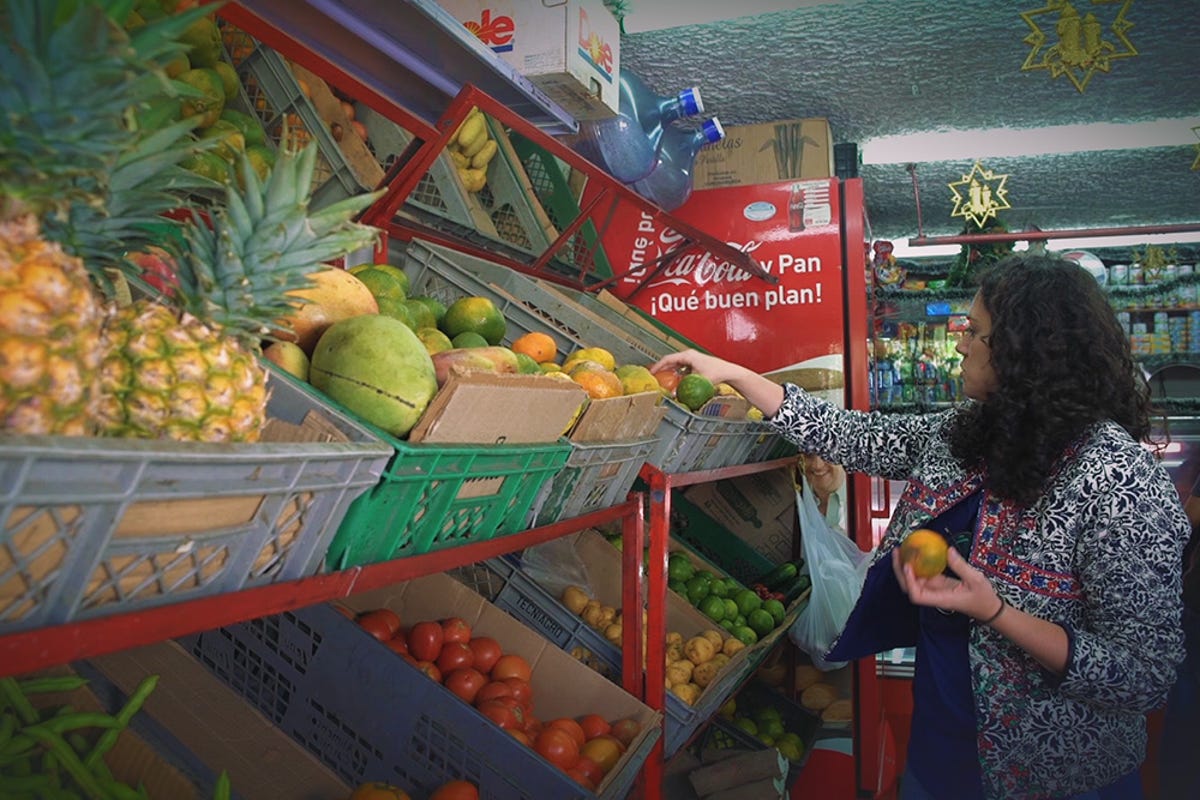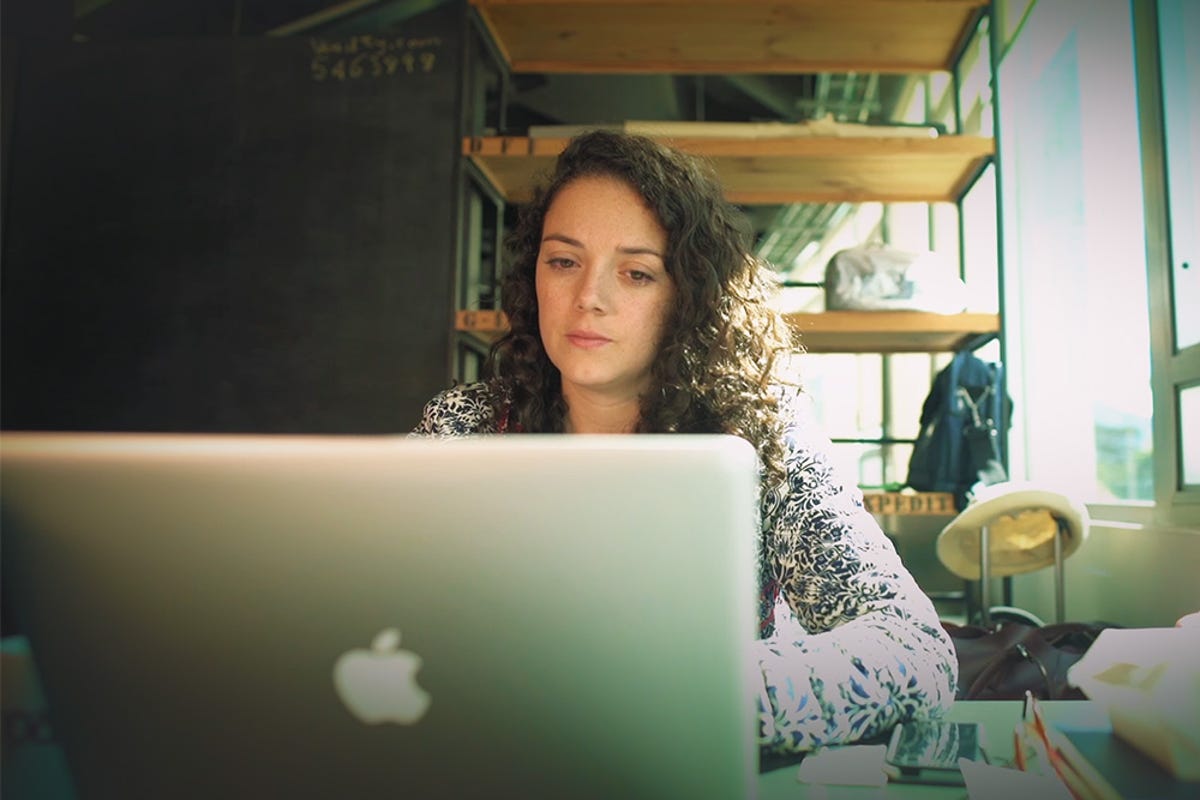Fellow Portrait
Carolina Medina
Agruppa

Creates virtual buying groups for small food vendors in low–income neighbourhoods using mobile technology.
Latin America and the Caribbean
COLOMBIA
Fellow
2017
Updated March 2017
In Colombia, around 340,000 Mom-and-Pop (M&P) shops supply 70% of the food consumed in low-income neighbourhoods, making them the gatekeepers of what people in their communities eat. These shops face a major challenge because they cannot access produce at wholesale prices and spend on average 15 hours a week and 20% of their income on transportation to buy produce from retail markets.
Founded in 2014 by Carolina Medina and Verena Liedgens, Agruppa is a social, tech and logistics business that aims to solve this inefficiency by leveraging mobile technology to create a virtual buying group among M&P shops in low-income neighbourhoods, aggregating their demand for fruit and vegetables into daily collective orders and buying in bulk.
Carolina’s passion for food security grew from her time working at the Food and Agriculture Organisation of the United Nations (FAO). The 28-year-old also studied political science for her undergraduate degree and went on to study a master’s degree in international development and humanitarian emergencies at the London School of Economics.
“I was at the right place at the right time – I met my co-founder and had the opportunity to start thinking around this issue and voila, Agruppa happened.”
Currently focussed on Bogota where there are around 100,000 M&P shops, Agruppa is creating a double social impact by economically empowering customers and providing access to high quality produce at discounted prices. Secondly, as Mom-and-Pop shops pass a proportion of the discounts to their customers, access to fresh produce for low-income families is improved. Each shop supplies on average 25 households, equating to just one M&P shop owner positively impacting what 100 people in low-income communities buy and eat.
We are disrupting the industry by leveraging existing technology to make information available to everyone.

Disrupting the supply chain
Lacking sufficient capital to buy in bulk, M&P shop keepers get up at 3am each day to leave their homes, often located in the same low-income neighbourhood where they have their shops, to travel to the central market. Around 80% of these shops are owned by women who work from dawn until dusk and who lose potential to sell because of their daily journeys to the market.
Daily life is radically changing for the better for M&Ps using Agruppa. Every night, the network of M&P shops use their mobile phones to order and Agruppa receives the incoming demand and aggregates it into daily collective orders. By collecting data over time, the company is able to buy in bulk at the farm. Orders are brought to the city and delivered to M&P shops which are charged wholesale prices. The economies of scale of buying in bulk generate savings of up to 30%, with a minimum of 5% going to M&Ps. Within the first four months of operation and 150 M&Ps, discounts were running at 8%.
The more vendors Agruppa has in its network, the higher the bulk buying power and discounts. M&Ps operate in a highly competitive environment – there are usually an average of 3 to 5 shops in one street - based on price. Those M&P shops buying produce from Agruppa at wholesale prices should lower their prices to end consumers. In order to remain competitive, other M&PS shops should eventually join Agruppa by snowball effect.
What I love most about running my own business is the possibility of waking up every single day and doing something that I’m passionate about, and being able to do it when I chose to do it.

Transforming with technology
“Technology is in everyone’s hands. 52% of Mom-and-Pop shops have smartphones, even if they are low income. Realising you have this technology available, and leveraging it so that people are more informed about prices and availability will change the way things are currently done.”
From a prototype delivering to just 10 stores in Bogota, Agruppa has grown rapidly. Now with 150+ active customers it is bringing fresh produce at lower prices to 15,000 people living in low-income neighbourhoods. As 10 to 20 shops join the network each week, the market potential is huge, as is the chance to fundamentally change the quality of life for people not just in Bogota, but across Colombia too.
You learn from failure and the faster you fail, the faster you learn and the faster you will find a viable solution.


